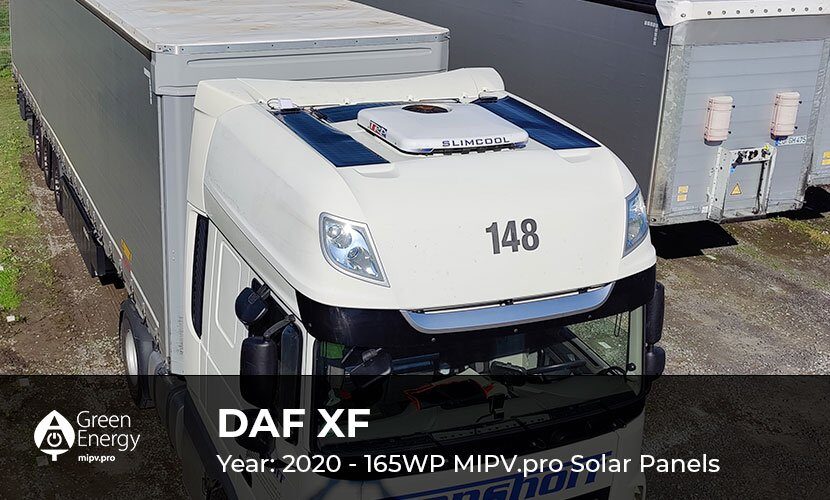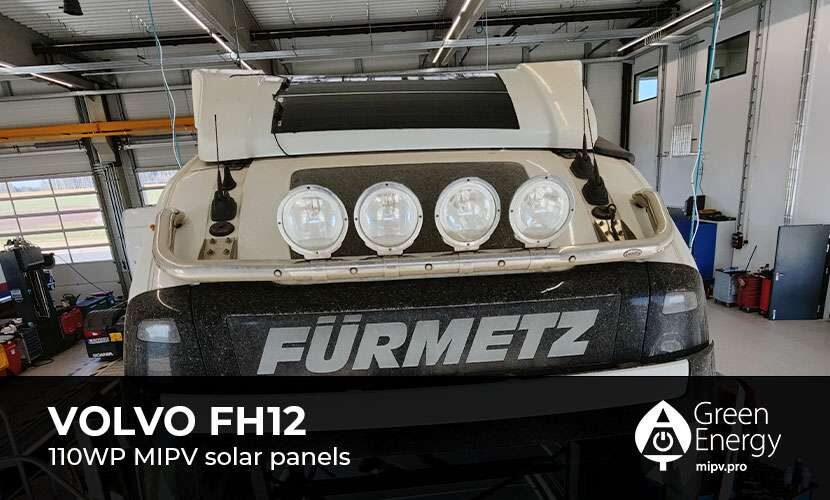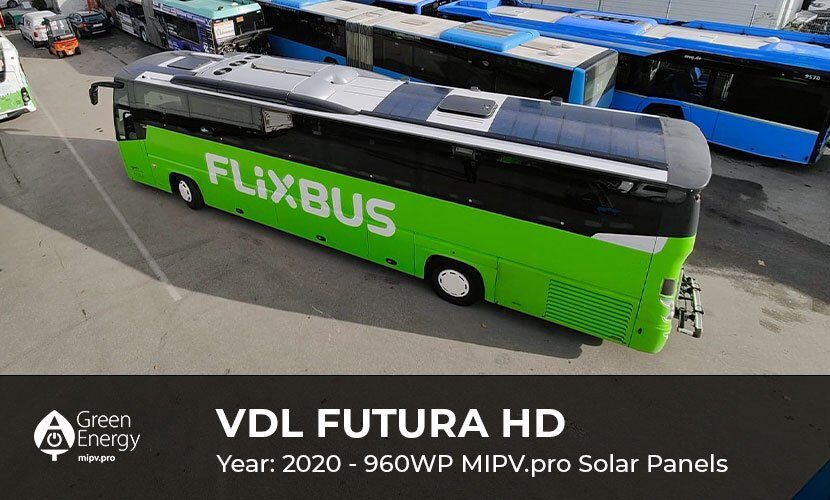Solar panel systems for the transport industry
1. What is this solution?
The offered product is Plug&Play, which means that it can be installed on any vehicle with batteries. The new cell technology of MIPV (Mobile Integrated Photovoltaic) produces electricity even at the lowest light intensity - the moment when we are just beginning to see daylight with our eyes.
2. Why to install?
E. Efficiency - with the help of the installed equipment, it is possible to avoid the deep discharge of the batteries and the downtimes related to it.
F. Competitiveness - at a time when most manufacturers set high ecological requirements for carriers, equipping a truck with a solar panel system is a quick and easy way to improve your competitiveness by reducing the amount of CO2 emissions produced.
After installing the device, the customer receives access to the application. The Mipv.pro app offers a user-friendly and efficient way to monitor and track your new charge controller data. With the app, you can access important information and get a clear overview of your system's energy consumption and performance.
This includes the energy produced in watts (W), the energy saved in kilowatt-hours (kWh), the amount of CO2 saved, as well as the battery capacity in volts (V) and the charging current in amperes (A). Multiple groups of vehicles can also be easily created and managed using the app
For which trucks will the system be most effective?
It is important to understand that the system will not be equally effective for all cars due to the driver's habits and location. From our point of view, the system would work most efficiently for a car that drives "far" distances to the South (for example, Italy, France, Spain, Portugal). The reason is quite simple - more sun means more efficiency of the solar system.
The driver's habits are also important. If the driver uses a lot of electrical equipment (computer, tablet, telephone, coffee machines, refrigerator, etc.), then it is certain that the installed system will be useful, as it will provide all the used electrical equipment with electricity. Similarly, with the peculiarities of using the car - the more time the driver spends in the car cabin, the greater the utility of the solar panel system.
It is important to remember that after the installation of the solar panel system, several other bonuses also come into effect:
- Fuel and AdBlue consumption decreases;
- The amount of CO2 emissions produced decreases;
- The motor is unloaded - the motor load decreases by approximately 1-2%;
- The service life of generators and batteries increases;
- There is an opportunity to avoid the deep discharge of batteries and the downtimes associated with it.

What does it look like in real life?
-
 Truck solar panels SCANIA
Truck solar panels SCANIA -
 Truck solar panels SCANIA MIPV sun power
Truck solar panels SCANIA MIPV sun power -
 Mercedess truck MIPV solar panels
Mercedess truck MIPV solar panels -
 Mercedess truck MIPV solar panels sun energy
Mercedess truck MIPV solar panels sun energy -
 VOLVO FH truck MIPV solar panels
VOLVO FH truck MIPV solar panels -
 VOLVO FH12 truck MIPV solar panels
VOLVO FH12 truck MIPV solar panels -
 MIPV buss solar panels
MIPV buss solar panels -
 MIPV solar panels for passenger buss
MIPV solar panels for passenger buss -
 MIPV passenger buss SOLARIS URBINO 18 solar panels
MIPV passenger buss SOLARIS URBINO 18 solar panels -
 MIPV IVECO camper solar panels sun powered energy
MIPV IVECO camper solar panels sun powered energy -
 Citroen Campster MIPV solar panels for job buss
Citroen Campster MIPV solar panels for job buss

Cost comparison for a truck
Client A:
In the case of customer A, the truck consumed 99 liters less fuel when idling in one month. Although the savings will certainly be lower in winter, the annual savings will be around 700 liters of fuel (1.87t CO2).

In the case of customer B, in the week when savings were lowest, 42 liters of fuel were saved at idle. Estimated savings will be around 500 to 700 liters of fuel (1.37 to 1.87t CO2).
In addition to the above-mentioned fuel economy, it is important to remember that after installing a solar panel system, several other bonuses also come into effect:
- Fuel and AdBlue consumption decreases;
- The amount of CO2 emissions produced decreases;
- The motor is unloaded - the motor load decreases by approximately 1-2%;
- The service life of generators and batteries increases;
- There is an opportunity to avoid the deep discharge of batteries and the downtimes associated with it.
Cost comparison for the bus
Client C:
2.4L/100km is the saving achieved when running assessments between May and November. Fuel savings in the specific period was 990.84 l. Taking into account that the efficiency of the panels decreases during the winter, the annual planned saving will be approximately 1400 liters of fuel (3.75t CO2).
In addition to the above-mentioned fuel economy, it is important to remember that after installing a solar panel system, several other bonuses also come into effect:
- Fuel and AdBlue consumption decreases;
- The amount of CO2 emissions produced decreases;
- The motor is unloaded - the motor load decreases by approximately 1-2%;
- The service life of generators and batteries increases;
- There is an opportunity to avoid the deep discharge of batteries and the downtimes associated with it.


